World leaders gathered Saturday, November 1st in Samarkand for the launch of the Samarkand Declaration on Tech Diplomacy, the world’s first global movement ensuring every nation has diplomatic capacity to shape the digital future.
Alongside UNESCO’s 43rd General Conference—the first outside Paris since 1985—the ceremony represents the first step of an international process that will bring the Declaration to every region by 2027 and achieve universal adoption by 2030.
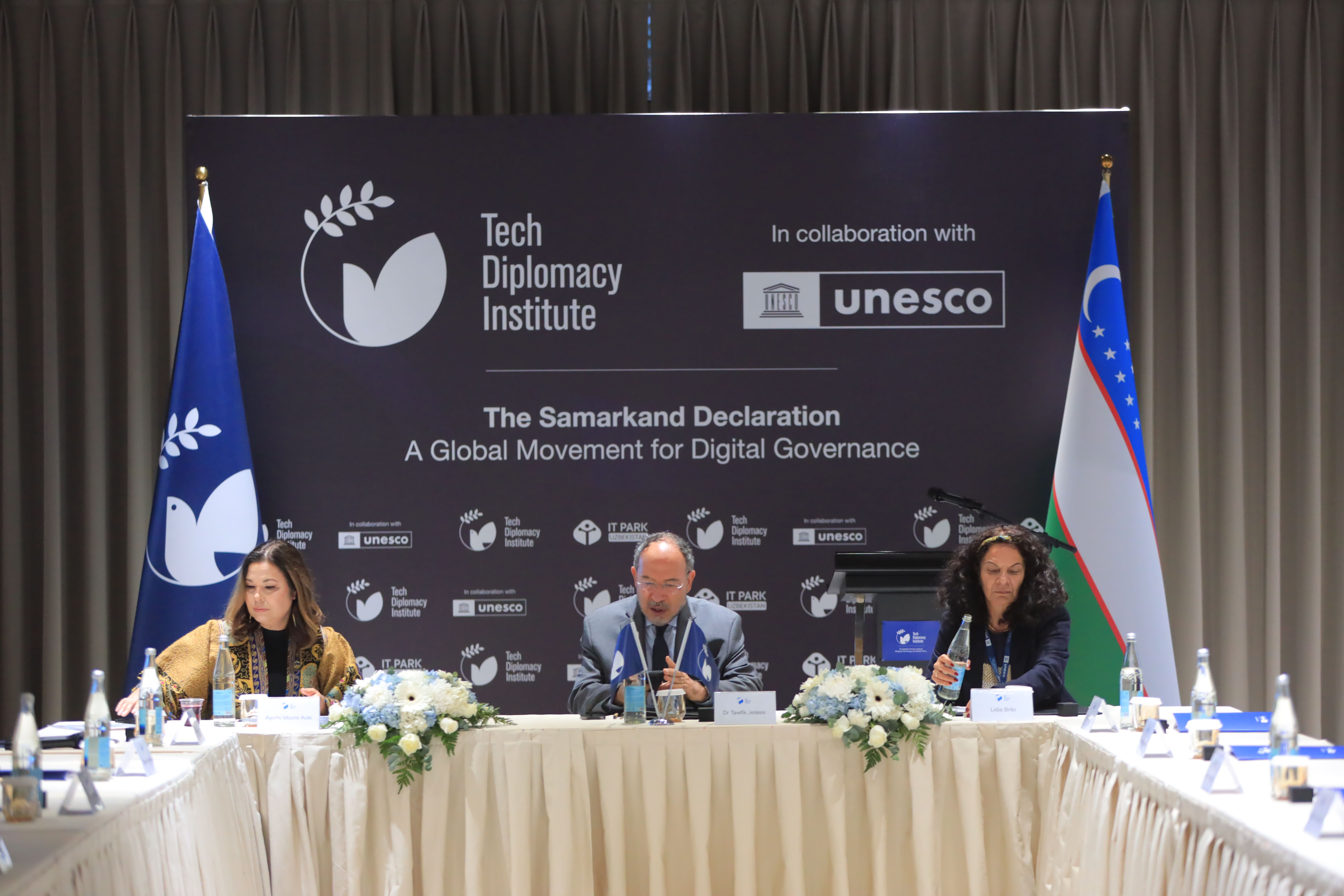
The Tech Diplomacy Institute (TDI), in collaboration with UNESCO, convened governments, industry leaders, civil society, and academia from Central Asia as founding signatories or observers, marking the beginning of a worldwide initiative to democratize technology governance.
This historic gathering positions the region as the cradle of a new era in international cooperation, where diplomacy meets innovation and where emerging nations take the lead in shaping the global digital order.
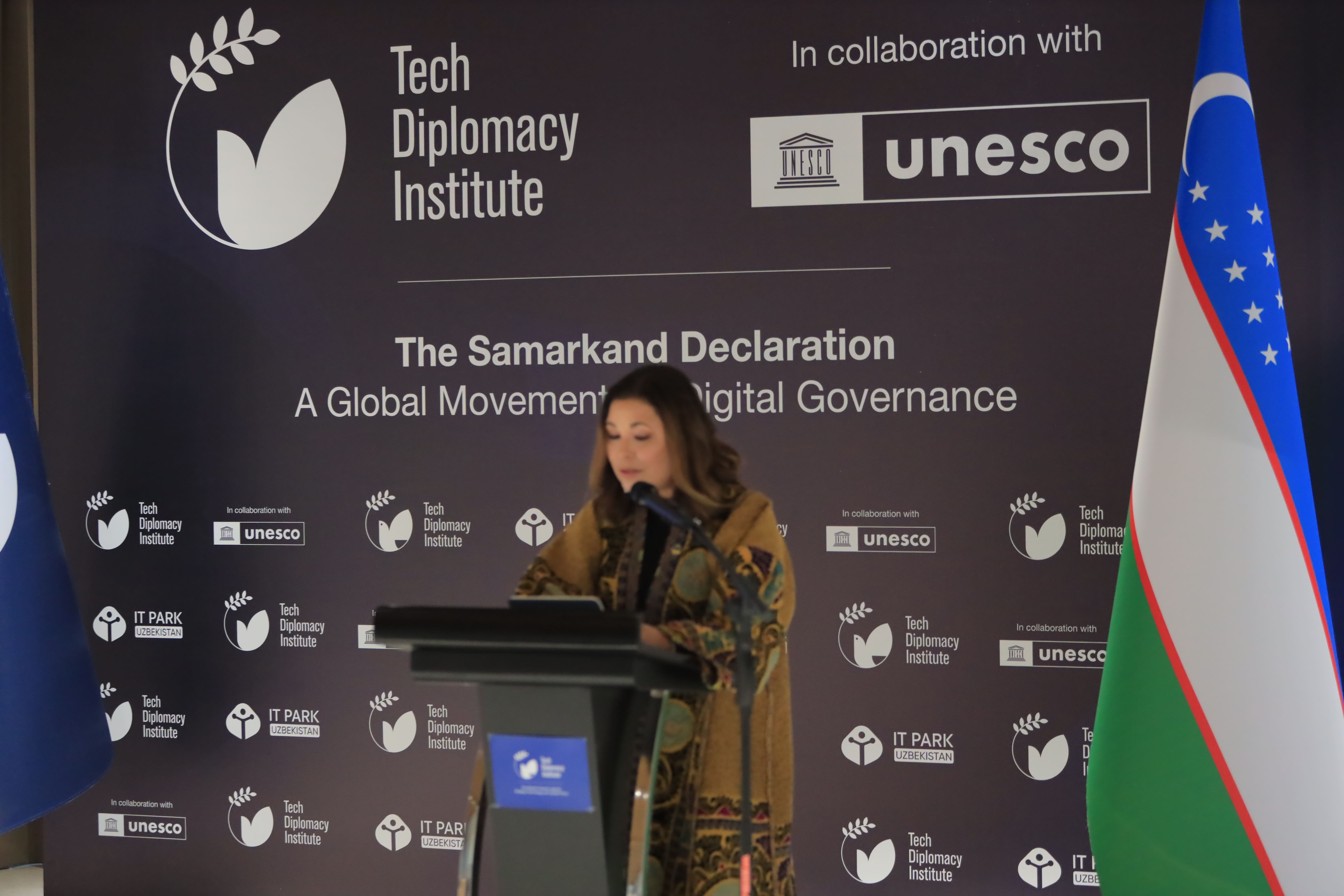
“From the Silk Road crossroads that once connected civilizations, we are forging a digital road to our shared future,” — said Ayumi Moore Aoki, Founder and President of the Tech Diplomacy Institute.
With over 170 countries lacking Tech Ambassadors and $2.8 trillion lost annually to fragmented digital regulation (Economist Impact, 2025), the Declaration provides a neutral platform to coordinate global standards on AI, data protection, cybersecurity, and emerging technologies.
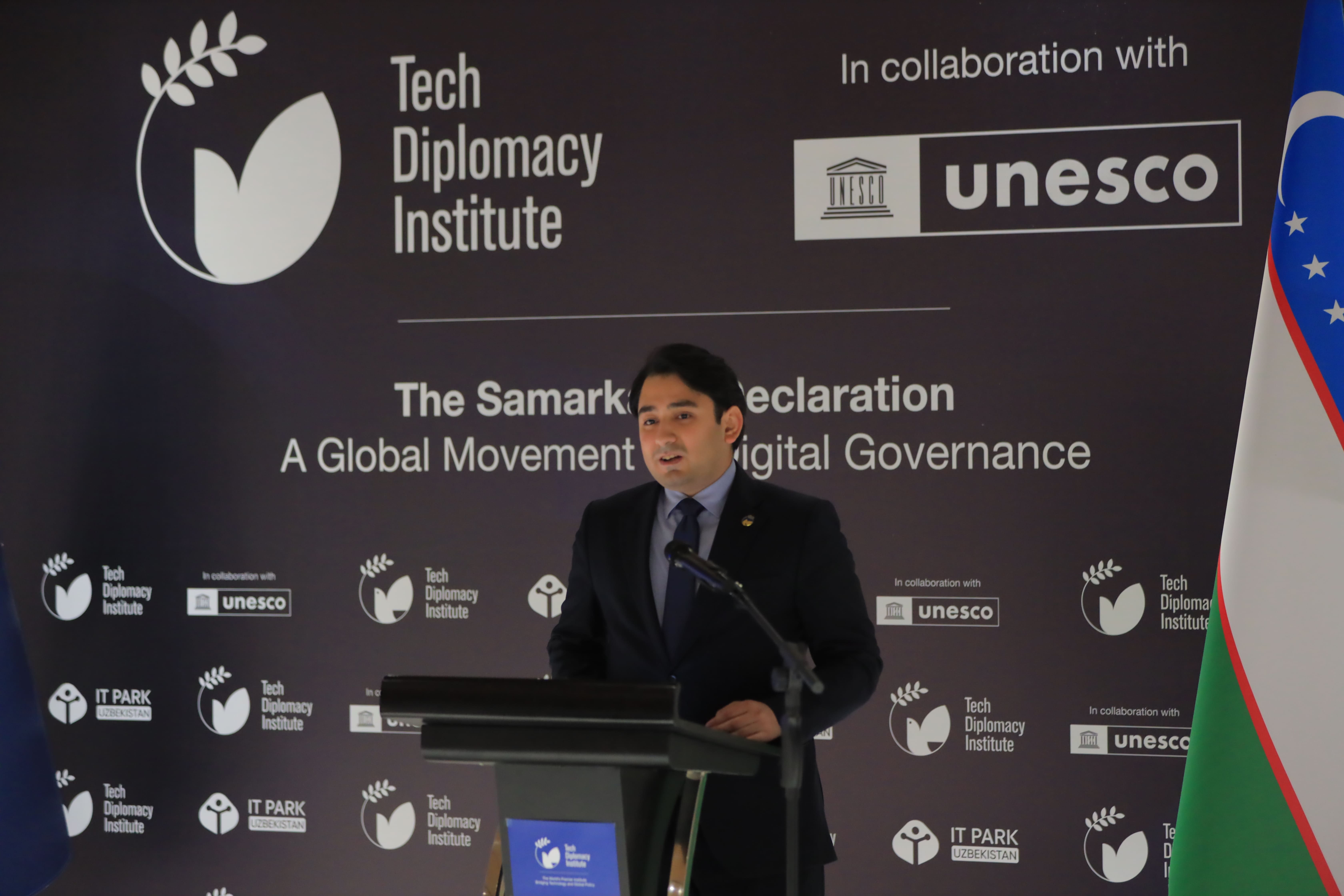
“Tech diplomacy is not an abstract idea — it is the language of collaboration, the architecture of shared progress. Here in Samarkand, where technology meets diplomacy, ambition turns into collaboration, and collaboration into lasting impact. The Samarkand Declaration stands as a shared commitment to build a more connected, ethical, and human-centered digital future — one where innovation serves people and trust unites nations,”
said Elyor Maksudov, Director of Startup and Investment Development at IT Park Uzbekistan.
Signatories are encouraged to:
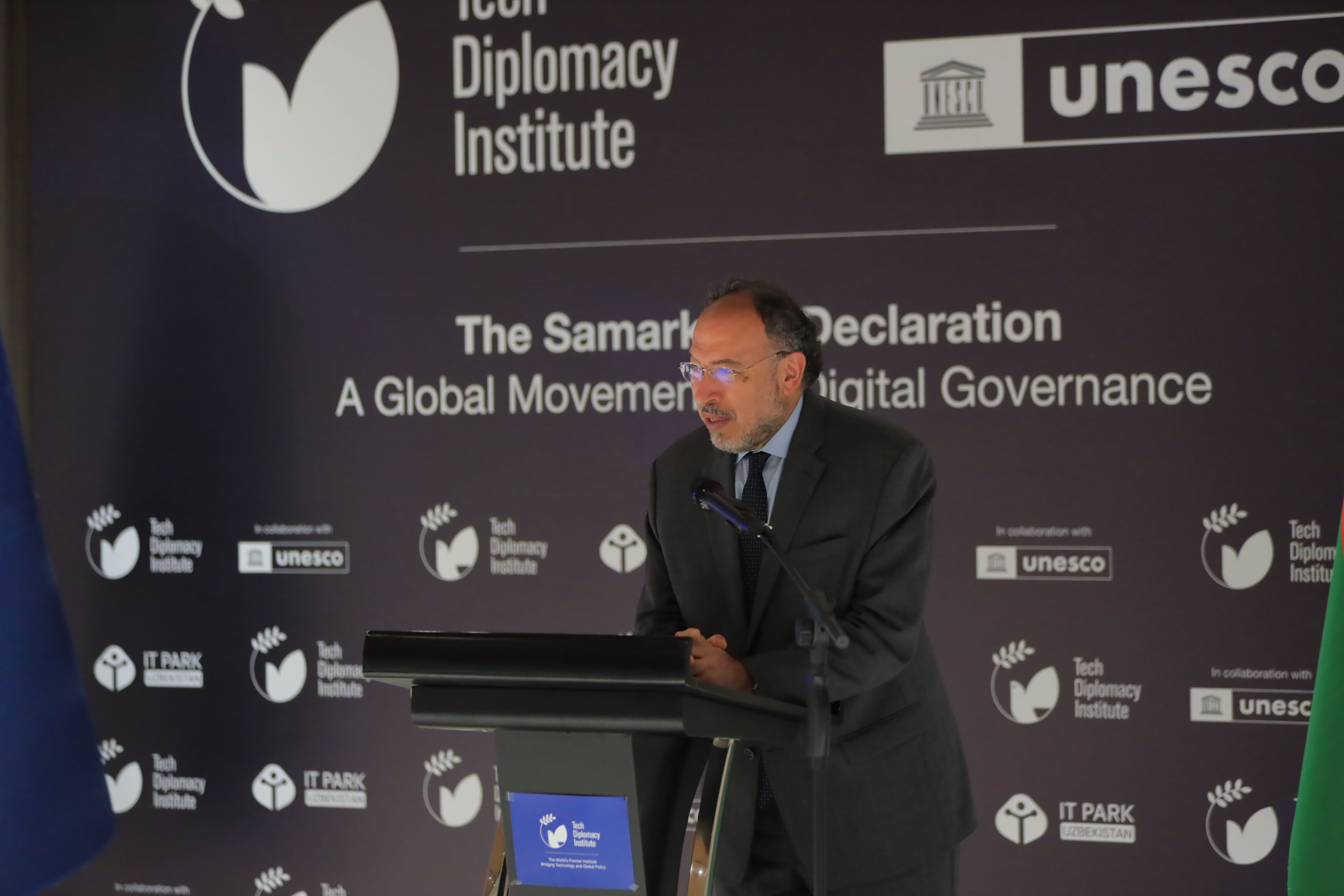
“Technology transcends borders, yet diplomacy has failed to keep pace,” said Dr. Tawfik Jelassi, UNESCO Assistant Director-General and Chair of TDI’s Supervisory Board. “The Samarkand Declaration represents the inclusive cooperation our digital age demands.”
Signatories affirmed that Tech Diplomacy must be grounded in collective action and tangible outcomes through joint testbeds, pilot initiatives, and knowledge-sharing platforms that promote experimentation, learning, and measurable impact. Building public trust through results and shared achievements, rather than solely through formal agreements, was recognized as essential across domains such as AI, cybersecurity, and data privacy.
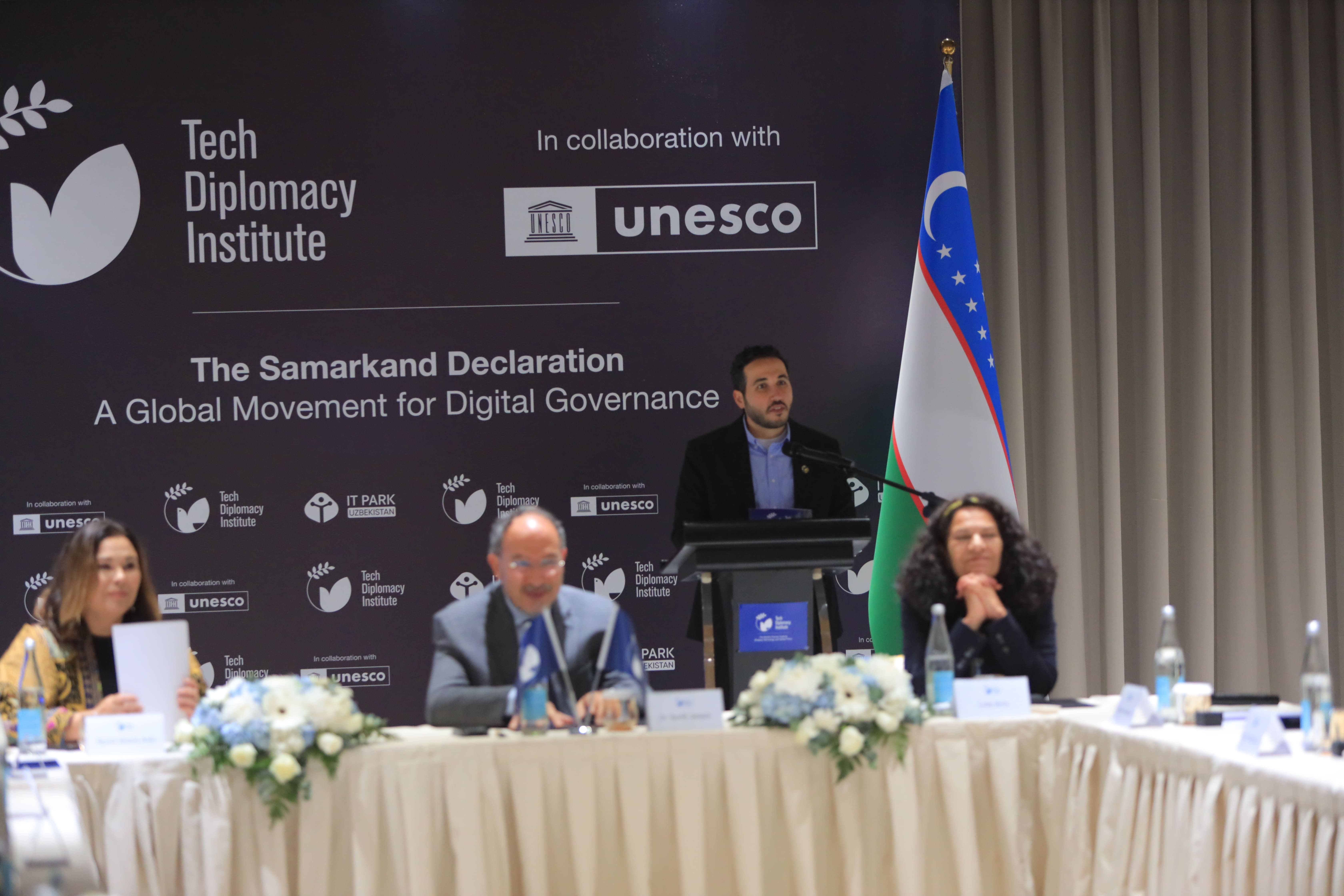
The Samarkand Declaration on Tech Diplomacy was signed by UNESCO and representatives of Kazakhstan, Kyrgyzstan, Tajikistan, and Uzbekistan. Among the signatories was IT Park Uzbekistan, the main partner of this initiative. Together with the High Technology Park of the Kyrgyz Republic, TBC Bank Uzbekistan, as well as government institutions, educational organizations, and technology communities from across Central Asia.
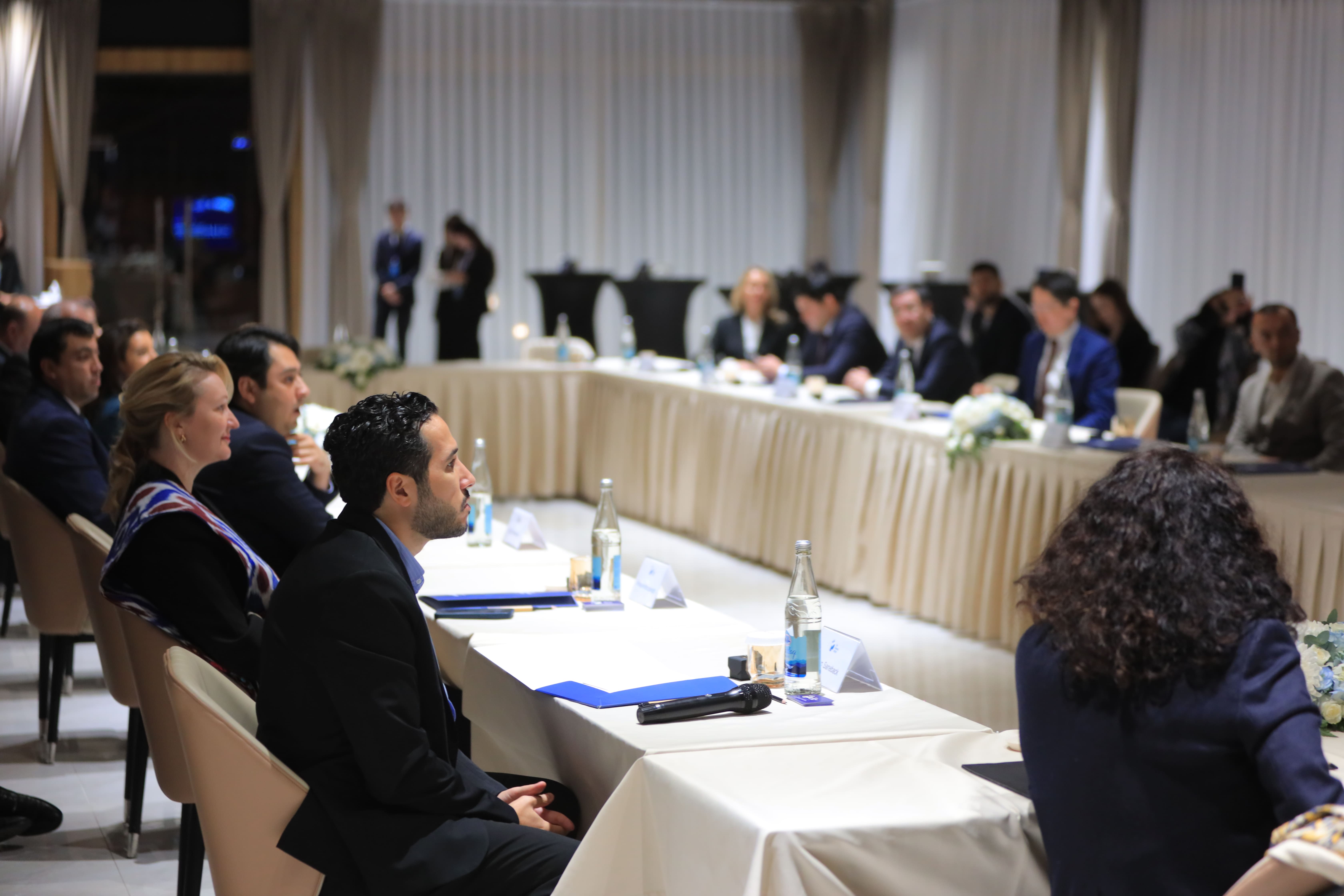
Following Samarkand, TDI will organize regional signing events across all continents from 2026 to 2028, with the goal of universal adoption by 2030. The Declaration remains open to all UNESCO Member States at www.tech-diplomacy.com/samarkand-declaration.
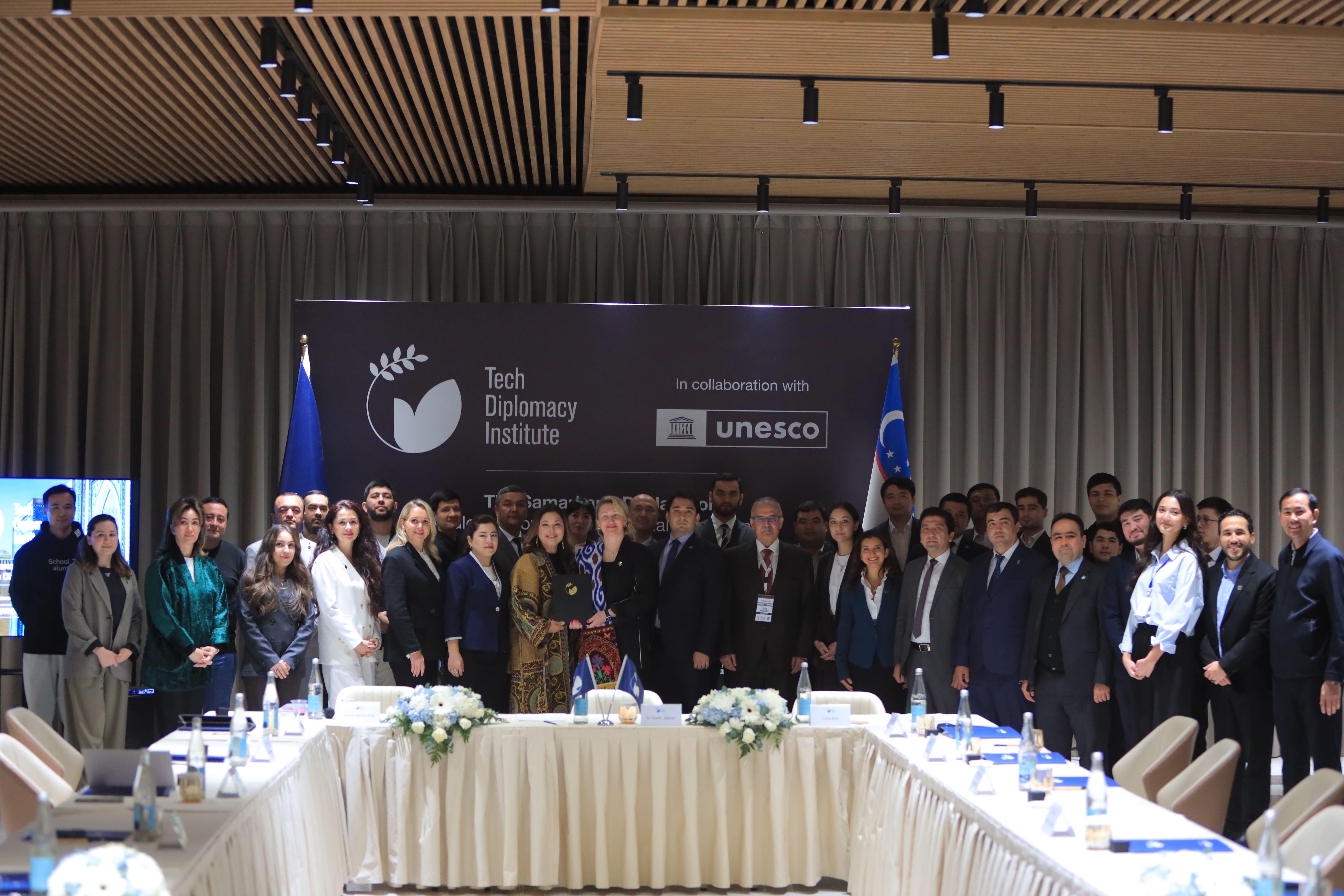
About the Tech Diplomacy Institute (TDI)The Tech Diplomacy Institute is the world’s first permanent, neutral platform bridging technology and global policy. In collaboration with UNESCO, TDI unites governments, industry, academia, and civil society to shape ethical, inclusive technology governance through diplomacy, capacity-building, and research.
04 November 2025
Uzbek startups set a new participation record at TechCrunch Disrupt 2025 in San Francisco
04 November 2025
IT Park Uzbekistan announced a tender for the supply of equipment for the Fergana ITES building
04 November 2025
Tashkent hosted the regional stage of ICPC Uzbekistan 2025: winners of the championship announced